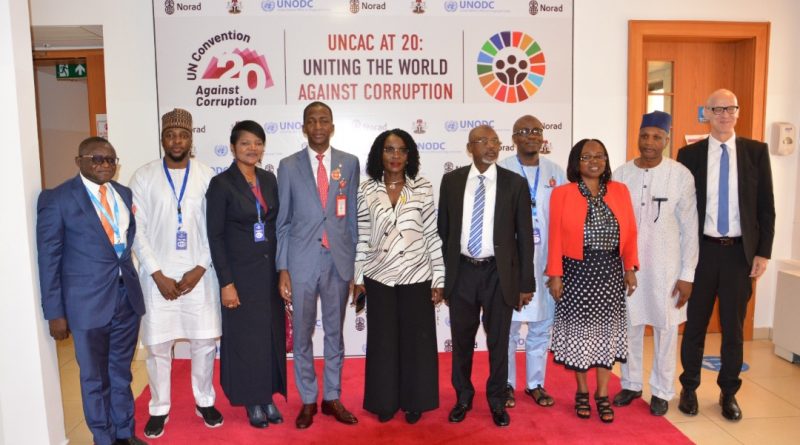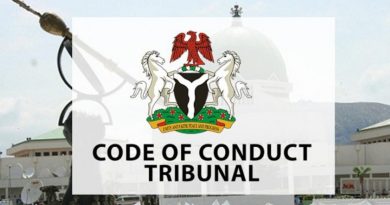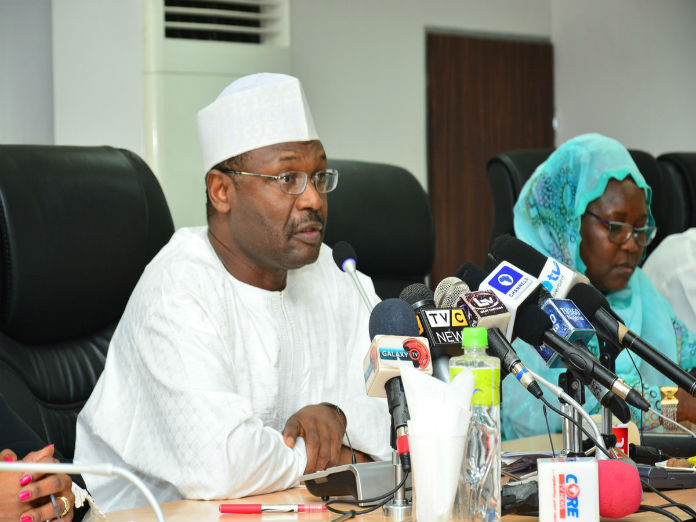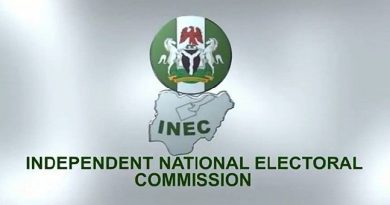UNODC, Others Gather for Strategic Dialogue on Nigeria’s Implementation of the 2014 and 2019 UNCAC Review Recommendations
Oru Leonard
Abuja,UNODC brought together government agencies, civil society organizations, the media and youth groups involved in the fight against corruption to discuss progress made in the implementation of the United Nations Convention against Corruption.
In order to facilitate the dialogue, UNODC presented the preliminary findings of a study it conducted over the past months through extensive consultation with anti-corruption agencies and other relevant stakeholders to assess the efforts undertaken by Nigeria to implement the recommendations of the United Nations Convention against Corruption (UNCAC) Review Mechanism.
Following ratification of the United Nations Convention against Corruption (UNCAC) in 2004 and establishment of the Review Mechanism in 2009, Nigeria has undergone two reviews for its implementation of the Convention. The first review was carried out in 2014 by Lesotho and Montenegro, while the second review was completed by Cote d’Ivoire and Myanmar in 2019.
The 2014 and 2019 review reports contained a total of 65 recommendations. The study found that Nigeria had made progress in implementing 51 of the 65 recommendations, with the greatest strides being made in the area of asset recovery. UNODC also suggested a set of targeted actions for Nigeria to fast-track the follow up to some of the pending review recommendations. These actions include, for example, harmonizing the collection of anti-corruption data, instituting more regular coordination meetings among heads of anti-corruption agencies, and accelerating the implementation of the National Anti-Corruption Strategy.
The presentation of the preliminary findings of the study was followed by a high-level panel discussion with Mrs. Beatrice Jedy-Agba, Honorable Solicitor-General of the Federation and Permanent Secretary of the Federal Ministry of Justice; Mr. Abdulrasheed Bawa, Executive Chairman of the Economic and Financial Crimes Commission (EFCC); Professor Isah Mohammed, Chairman of the Code of Conduct Bureau; Professor Sadiq Radah, Executive Secretary of the Presidential Advisory Committee Against Corruption (PACAC); Ambassador Ifeyinwa Angela Nworgu, Chairperson of the Board of Trustees of the Centre for Fiscal Transparency and Integrity Watch; Mr. Waziri Adio, Founder and Executive Director of Agora Policy; and Mr. Mubarak Idris, Member of the European Union Youth Sounding Board.
The panelists discussed the findings of the study and suggested ways for Nigeria to further enhance the impact of its anti-corruption investments.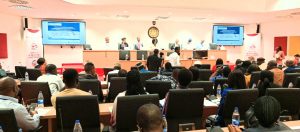
Mrs. Jedy-Agba outlined how her Ministry is working to improve coordination across Nigeria’s anti-corruption agencies through the establishment of an inter-ministerial body overseeing and coordinating the implementation of the National Anti-Corruption Strategy.
Chairman Bawa identified some of the drivers behind his agency’s recent successes in securing a rapidly growing number of convictions, from 195 in 2016 to 3,615 in 2022 so far. He explained that the EFCC had invested significant resources in training and equipping its staff adequately, while also developing new policy documents and Standard Operating Procedures to increase internal coordination and efficiency.
Professor Mohammed emphasized the benefits of digitizing and automating asset declarations by public officials, which are currently conducted through face-to-face interviews. In his view, phasing out human interactions would fast track declaration processes, free up human resources and provide greater confidentiality for the disclosure of sensitive information.
Professor Radah of PACAC praised Nigeria for its successful recovery of ill-gotten assets, though he emphasized the need for continued improvement in this area. He insisted that “asset recovery is key to ensure that crooks never benefit from the proceeds of crime”
Mr. Idris stressed the importance of investing recovered assets in youth-focused projects. As a youth representative, he explained that the effective reduction in corruption would be critical for young people to have increased confidence in Government.
With respect to the UNCAC review recommendations, Mr. Adio pointed out that “anything that is not assigned rarely gets done”. Thus, he argued that an effective way to strengthen implementation is to clearly assign recommendations to specific anti-corruption bodies.
Ambassador Nworgu recognized the anti-corruption efforts undertaken by the Federal Government, while calling for greater engagement with State and local governments in this regard.
Supporting Nigeria in the effective implementation of the United Nations Convention Against Corruption (UNCAC), with a view to safeguarding people, institutions and the economy from corruption and illicit financial flows is a key priority area for UNODC’s work in Nigeria, as laid out its 2030 Strategic Vision for Nigeria. It has also been identified as one of the transformative initiatives in the newly adopted 2023-2027 United Nations Sustainable Development Cooperation Framework for Nigeria.

